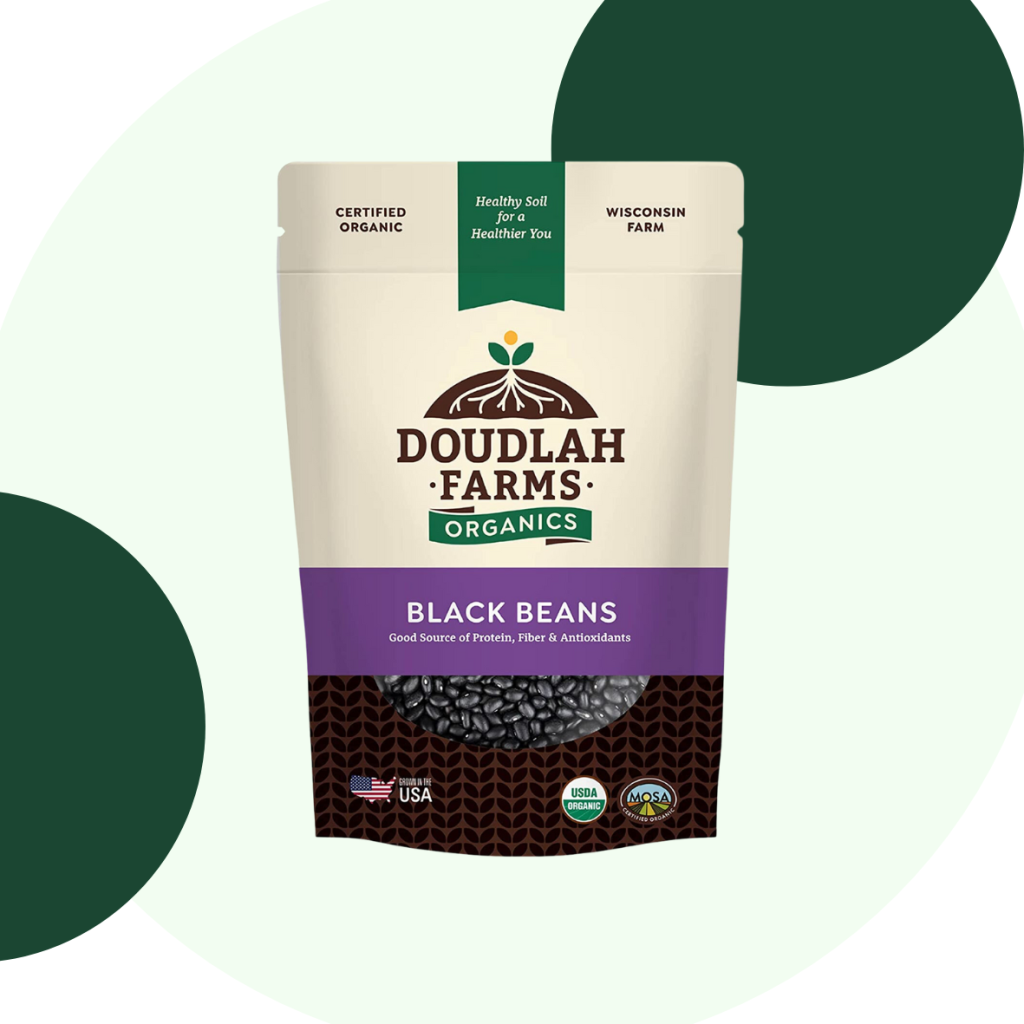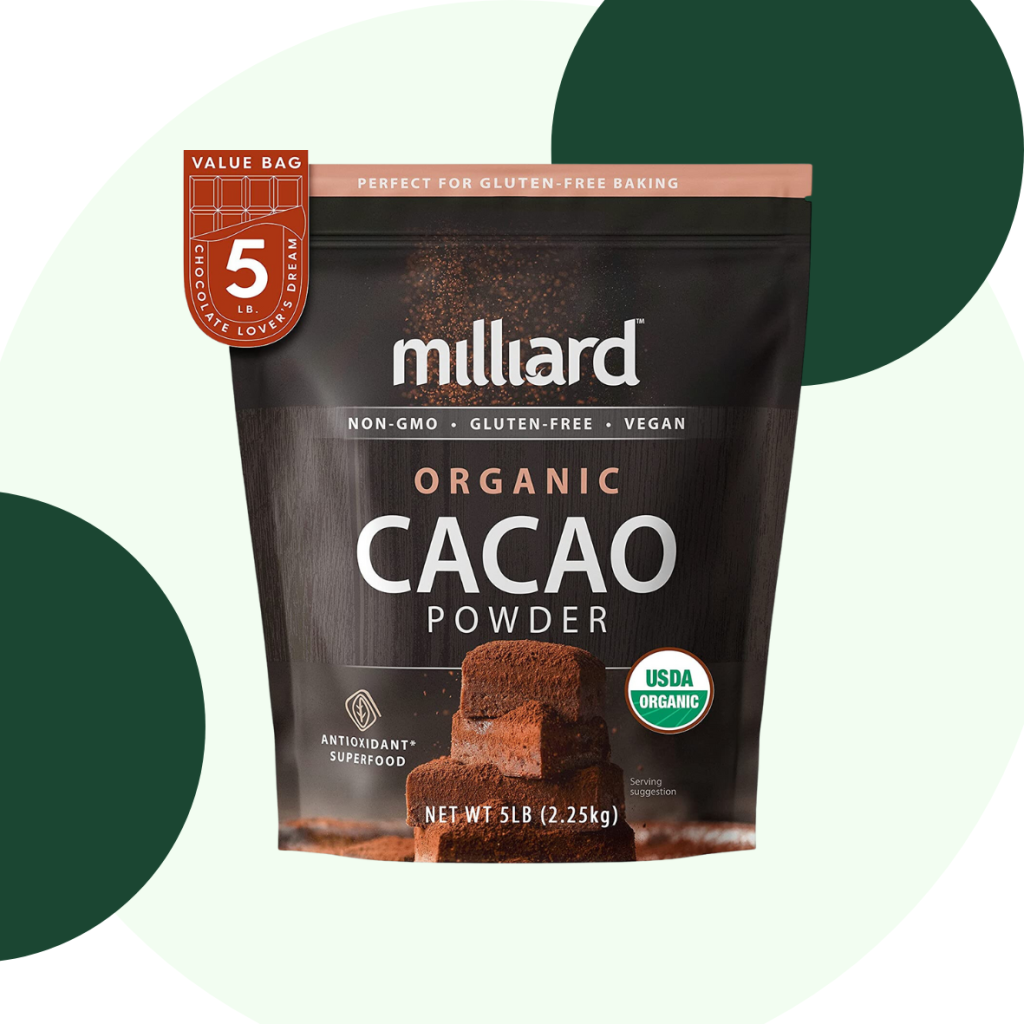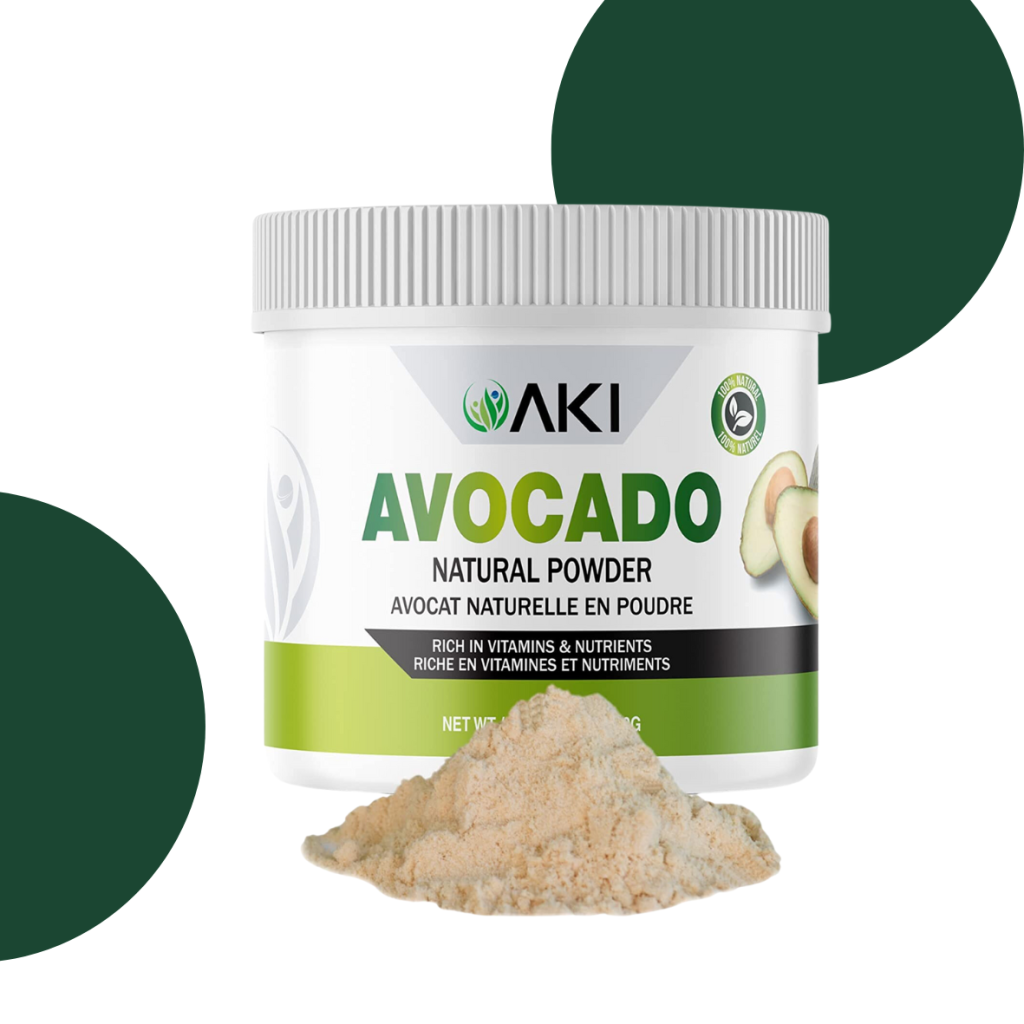10 Best Foods for Magnesium: Boost Your Energy & Well-Being
In this article, we will discuss the top foods for magnesium that can help you boost your energy and overall well-being.

Magnesium is a crucial mineral that is important for the general health and welfare of the body.
It plays a role in various biochemical activities such as generating energy, muscle, and nerve function, and protein synthesis.
Many individuals suffer from magnesium deficiency due to inadequate consumption of the mineral through their diet, which can result in a range of health issues despite its significance.
In this article, we will discuss the top foods for magnesium that can help you boost your energy and overall well-being.
What is Magnesium?
Magnesium is a vital mineral that is involved in numerous biochemical functions within the body.
It is the fourth most abundant mineral in the body and is involved in over 300 enzymatic reactions.
Muscle and nerve function, protein synthesis, blood pressure regulation, and energy production require magnesium.
Why is Magnesium Important for Your Health?
Maintaining good health and well-being requires the essential presence of magnesium.
Magnesium plays a vital role in various body functions, including bone health, heart health, and energy production:
- By assisting with the absorption and processing of calcium, a vital component for the creation and upkeep of bones
- By regulating heart rhythm and blood pressure, as well as supporting the function of the cardiovascular system
- It helps to convert food into energy that the body can use to carry out various tasks
Research suggests that magnesium deficiency can increase the risk of several health problems, including cardiovascular disease, type 2 diabetes, and osteoporosis.
Symptoms of Magnesium Deficiency
Magnesium deficiency can cause several health problems, including:
- muscle weakness
- fatigue
- high blood pressure
- abnormal heart rhythms
- migraines
Other symptoms of magnesium deficiency may include loss of appetite, nausea, vomiting, and muscle cramps.
How much magnesium should I consume daily?
The recommended daily intake of magnesium varies based on gender and age, with specific amounts listed in milligrams (NIH)
| Life Stage | Recommended Amount |
|---|---|
| Birth to 6 months | 30 mg |
| Infants 7–12 months | 75 mg |
| Children 1–3 years | 80 mg |
| Children 4–8 years | 130 mg |
| Children 9–13 years | 240 mg |
| Teen boys 14–18 years | 410 mg |
| Teen girls 14–18 years | 360 mg |
| Men | 400–420 mg |
| Women | 310–320 mg |
| Pregnant teens | 400 mg |
| Pregnant women | 350–360 mg |
| Breastfeeding teens | 360 mg |
| Breastfeeding women | 310–320 mg |
A quick look at the best foods for magnesium :
Magnesium is widely distributed in plant and animal foods and in beverages
Spinach, legumes, nuts, seeds, and whole grains are all examples of green leafy vegetables that provide valuable nutrients (Standing Committee on the Scientific Evaluation of Dietary Reference Intakes., 1997); (Ross et al., 2020).
Magnesium can be obtained from foods that have dietary fiber.
Some breakfast cereals and other fortified foods have magnesium added to them.
The magnesium content in certain types of food processing, such as removing the germ and bran during grain refinement, is significantly reduced (Standing Committee on the Scientific Evaluation of Dietary Reference Intakes., 1997).
The quantity of magnesium found in tap, mineral, and bottled water differs based on the brand and source, with levels ranging from 1 mg/L to over 120 mg/L (Azoulay et al., 2001).
The body usually absorbs around 30% to 40% of the magnesium consumed through diet (Coates et al., 2010).
Here are the top 10 foods for magnesium deficiency
Beet Root Powder
Beetroot is a nutrient-dense vegetable that is high in magnesium.
It is also a rich source of other essential vitamins and minerals, including folate, iron, and potassium.
Beetroot can be consumed in various forms, including roasted, boiled, or grated into a salad.
One cup of boiled beetroot contains approximately 39 milligrams (mg) of magnesium, which accounts for about 10% of the recommended daily allowance (RDA) for adult males and females.
KOS Organic Beet Root Powder
Magnesium-rich powder for Energy and Cardiovascular Health
- Climate Pledge Friendly
- USDA certified organic
- Non-GMO, soy-free, and gluten-free
- Contains betalains for heart health
- Increases nitric oxide levels, and improves circulation and oxygen delivery.
- Convenient
- easy-to-use
- 90 servings per jar

Kale & Spinach Powder
Spinach is a green leafy vegetable that is rich in magnesium.
One cup of cooked spinach provides approximately 157mg of magnesium, which is around 40% of the recommended daily allowance (RDA) for adults.
Kale is a highly nutritious leafy green vegetable that is a good source of magnesium.
One cup of chopped raw kale (about 16 grams) contains approximately 15% of the recommended daily allowance (RDA) of magnesium for adults.
Using a combination of spinach and kale powder is a convenient and easy way to boost your magnesium intake.
These powders can be easily added to smoothies, juices, or other recipes to provide a nutrient-dense boost.
Pixie Organic Kale & Spinach Vegetable Powder
Pixie Organic Kale & Spinach Vegetable Powder
- Climate Pledge Friendly
- USDA certified organic
- No extra additives
- Sustainable packaging
- Picky eater hack
- Essential vitamins and nutrients
- Easy to use
- With 1 tsp of powder equaling 1 cup of fresh veggies

Almonds
Almonds are an excellent source of magnesium.
A quarter cup of almonds contains approximately 97mg of magnesium, which is about 24% of the RDA for adults.
Magnificent Magnesium: Organic California Almonds
Get your daily dose of magnesium with these delicious and nutritious nuts!
- Climate Pledge Friendly
- USDA certified organic
- Non-GMO, Kosher, and Vegan certified
- Whole, raw, unsalted kernels
- Antioxidants, protein, fiber, and essential nutrients
- Suitable for Keto/Paleo diets as a healthy snack option
- Versatile ingredient
- A bulk 2-pound package

Moringa
Moringa is a superfood that is packed with essential vitamins and minerals, including magnesium.
This plant is native to India and has been used in traditional medicine for centuries.
Moringa can be consumed in various forms, including powder, capsules, and tea.
One tablespoon of moringa powder contains approximately 15 mg of magnesium, which accounts for about 4% of the RDA for adult males and about 5% for adult females.
OMG! Superfoods Organic Moringa Powder
Power up with Magnesium, the Essential Mineral for Health and Fitness
- Climate Pledge Friendly
- USDA certified organic
- Provides energizing and immune-boosting effects
- Reusable packaging that promotes sustainability
- Gluten-free, Kosher certified, and vegan
- Promote a healthier lifestyle and overall well-being
- Convenient powder form for adding to drinks like smoothies
- A 28-serving container

Black Beans
Black beans are a nutrient-dense legume that is high in magnesium.
One cup of cooked black beans contains approximately 120mg of magnesium, which is about 30% of the RDA for adults.
Black Beans: The Power Of A Vital Mineral
Black Beans: The Power Of A Vital Mineral
- Climate Pledge Friendly
- USDA certified organic
- Certified Organic, Non-GMO, Gluten-Free, with No Artificial Flavors or Preservatives
- Locally grown and packaged in Wisconsin by a 6th generation farm family
- Fiber and protein-rich, great for soups, salads, chilis, salsas, and burritos
- Harvested at peak flavor and dried for year-round enjoyment
- Farmed using regenerative, biodynamic practices for nutrient-richness and soil health
- Supports a healthy rural farm economy and sustainable food practices
- 100% organic farming

Cacao
Cacao is the raw form of chocolate and is also a food for magnesium.
It is also high in antioxidants and has been shown to have various health benefits, including improving heart health and reducing inflammation.
One ounce of cacao nib contains approximately 64 mg of magnesium, which accounts for about 16% of the RDA for adult males and about 20% for adult females.
Milliard Organic Raw Cacao Powder – The Guilt-Free Chocolate Alternative
Packed with Magnesium and Other Health Benefits
- Climate Pledge Friendly
- USDA certified organic
- Amazon’s Choice
- Organic and non-processed forms of cocoa
- Retains natural health benefits of cocoa
- Gluten-free and non-GMO
- Imported from Peru, the largest source of the world’s cocoa
- High in antioxidants, even more than blueberries, tea, wine, and goji-berries
- Naturally elevates mood and boosts energy
- Cholesterol-free and contains 1g of fiber per serving
- Ultra-fine and silky texture for easy use in various recipes

Avocado
Avocado is a healthy and tasty fruit that is also a great source of magnesium.
One medium avocado provides around 58mg of magnesium, which is about 15% of the RDA for adults.
Nutrient-Packed Boost With AKI Avocado Superfood Powder, Rich In Magnesium
Elevate Your Nutrition with Antioxidants, Healthy Fats, and More!
- Rich in essential vitamins, minerals, and antioxidants
- Versatile Ingredient
- Sugar-free and Non-GMO (Hass avocados)
- For post-workout routine
- Flavorsome aroma
- Source of healthy fats
- 6-ounces Jar

Pumpkin Seeds
Pumpkin seeds are a tasty snack that is also an excellent source of magnesium.
One ounce (28 grams) of pumpkin seeds provides around 150mg of magnesium, which is about 37% of the RDA for adults.
Terrasoul Organic Pumpkin Seeds – Superfood Snacking!
Premium Quality Raw & Unsalted Pepitas
- Climate Pledge Friendly
- USDA certified organic
- Freshest and highest quality seeds
- Raw and unsalted seeds
- Vegan and Gluten-Free
- 30-Day-Money-Back Guarantee
- Family-run business

Figs
Figs are a sweet and nutritious fruit that is also high in magnesium.
One cup of dried figs contains approximately 101mg of magnesium, which is about 25% of the RDA for adults.
Tender & Juicy Organic Dried Smyrna Figs
Nutrient-rich, Additive-Free, and Allergen-Friendly Snack Packs by Sunny Fruit
- Organic dried Smyrna figs
- Climate Pledge Friendly
- USDA certified organic
- Nutrient-rich: potassium and magnesium
- No additives
- Allergen-friendly: vegan, kosher and halal
- 40oz bulk bag
- Versatile
- Satisfaction Guarantee

Brown Rice
Brown rice is a nutritious whole grain that is also a good source of magnesium.
One cup of cooked brown rice contains approximately 84mg of magnesium, which is about 21% of the RDA for adults.
Lundberg Family Farms Organic Brown Long Grain Rice
Sustainable, Subtle, and Separates When Cooked
- 100% whole grain and high in fiber
- Climate Pledge Friendly
- USDA certified organic
- 17+ varieties to choose from
- Vegan and Kosher
- Gluten-free, and Non-GMO Project Verified
- 100% recyclable packaging
- Sustainable farming practices and 100% renewable energy
- Cultivated for over four generations
- Subtle flavor and is perfect for culinary creations

Key Takeaways
Magnesium is an essential mineral that plays a crucial role in various biochemical activities in the body, including generating energy, muscle and nerve function, and protein synthesis.
Inadequate consumption of magnesium through the diet can lead to magnesium deficiency, which can result in a range of health issues.
The top foods for magnesium that can help boost energy and overall well-being.
Frequently Asked Questions
What are some of the best sources of magnesium?
How can I tell if I have a magnesium deficiency?
Why is magnesium important for our health?
How much magnesium do I need each day?
Can I get enough magnesium from my diet alone?
Review date not set.
How we reviewed this article:
Latest on:





